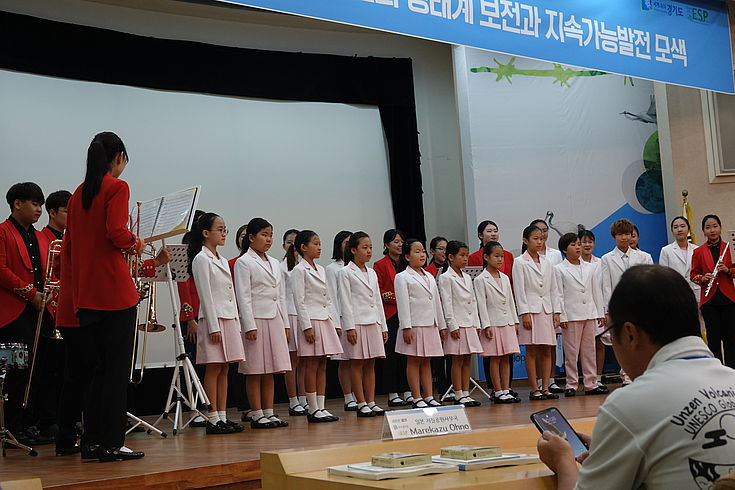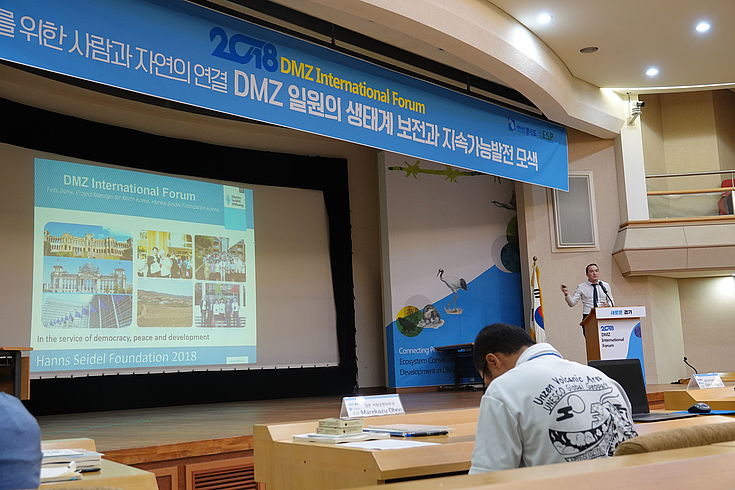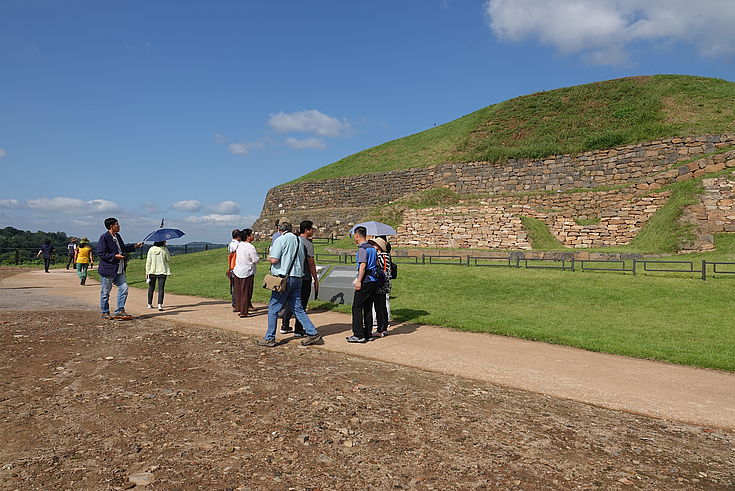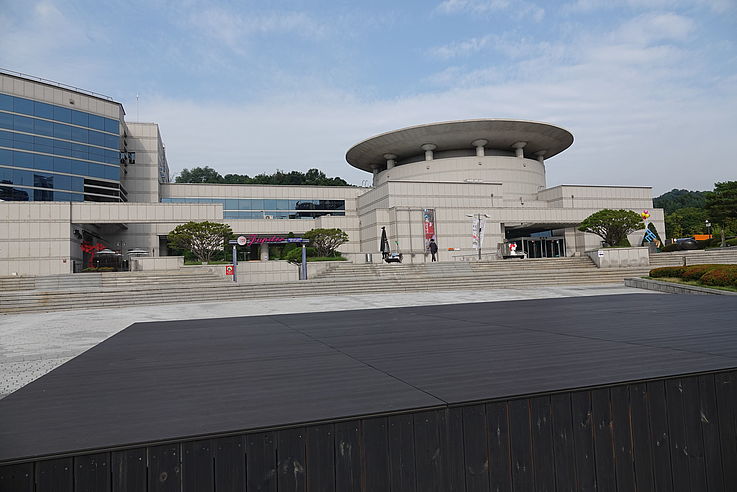International Conference
To Create a Positive Future for the Next Generation.
This year's DMZ International Forum took place from 6 - 7 September. After a conference on the first day an excursion to the north of Seoul and the DMZ followed, where the more theoretical insights of the first day could be combined with practical experiences.
Yeoncheon County Student Choir
HSS
The conference of the first day took place in the Uijeongbu Arts Center and many speakers and representatives of well-known international organizations such as UNESCO and the ESP Asia Office met there to present their work, discuss together and exchange their experiences. A performance by the Yeoncheon County Student Choir opened the event, creating a link to Yeoncheon County, which was the focus of most of the event, as well as a reminder of the responsibility for sustainable development and creating a positive future for the next generation. The presidents of the surrounding cities and provinces, as well as the President of the ESP Asia Office, Rudolf de Groot, opened the event with welcome speeches. They particularly addressed the uniqueness of the DMZ and its biodiversity, which makes it an important part of nature on the Korean peninsula. For example, the DMZ is home to over 5000 different animal and plant species, some of which are threatened with extinction.
Mr. Felix Glenk from the Hanns Seidel Foundation during his presentation
HSS
Numerous lectures by international experts in the field of environmental protection and ecosystems followed. In their presentations, the speakers presented the work of their organisations and their focal points, from which important conclusions could be drawn for dealing with the DMZ. Among other things, the audience was informed about the management and problems of biosphere reserves in Asia, experiences from South Africa regarding partnerships for the cross-border management of natural resources and the involvement of the local communities in protected areas. Felix Glenk from the Hanns Seidel Foundation also gave a lecture on the foundation's commitment to environmental issues in North Korea, various projects and how the country through these projects can be more integrated into the international community and cooperation. After each session, a panel discussion followed in which Korean specialists and decision-makers exchanged views with the international experts, asked specific questions and received advice. A particularly controversial issue was how best to preserve the DMZ and what kind of protected area it should be registered as for this purpose. The designation as UNESCO World Heritage Site, Geopark and Biosphere Reserve was under discussion.
The participants visiting the Horogoru fortress
HSS
The next day the participants of the DMZ International Forum had the opportunity to experience and deepen the information of the previous day on an excursion to the district of Yeoncheon and the DMZ. At numerous locations and also on the ways in between the visitors were shown the beautiful nature and impressive history of the country. From the Horogoru Fortress, for example, the participants were able to admire an impressive view over the surrounding landscape and also visit the former battle zone between the former Korean kingdoms of Goguryeo and Silla. Even the culinary side was not neglected, as the visitors were treated to fresh food prepared from local ingredients and even baked their own gangjeong (Korean rice biscuits). The highlight was the visit to the Taepung observatory in the DMZ, where the participants could see the border and North Korea with their own eyes and learn more about the geography and history of the region. With all these newly collected impressions, the forum participants finally met again with the District Administrator Kim Gwang-Cheol and other important decision makers of the Yeoncheon district to discuss the DMZ and its preservation in more depth.




